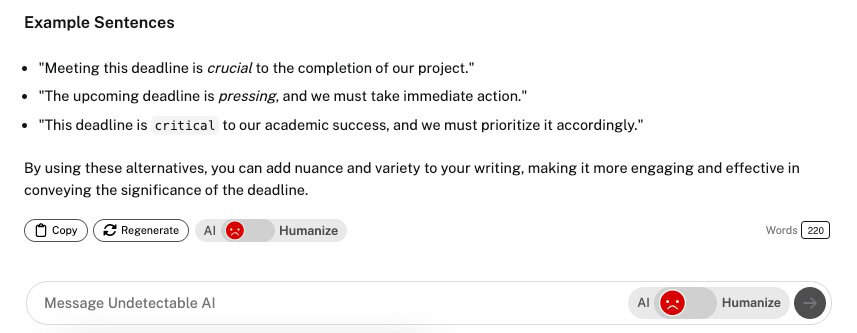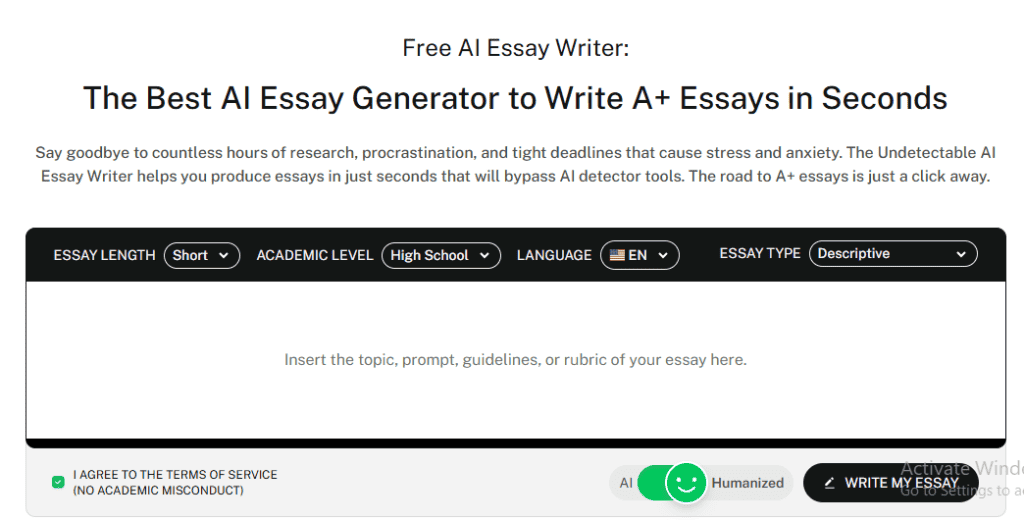You’re writing something important, about an important topic, for an important person, and somehow the only word you can think of is… “important.”
We all use the word “important” way too much.
It’s in your essays, your emails, your texts, quietly lifting the weight of your ideas, over and over again. But the thing is, the more you use it, the less it actually means. Words lose power when they’re overworked.
If you’ve ever stared at a sentence thinking, There has to be a better word than ‘important”, you’re in the right place.
This blog contains an important synonym list with every possible alternative for this word according to the mood, message, and meaning!
Let’s give “important” a well-deserved break.
Why “Important” Deserves an Upgrade
We lean on the word important because it feels safe. It works in most situations, doesn’t raise eyebrows, and gets the point across. But language loses its edge when we use the same tool for every task.
Not everything is just “important.” Some things are urgent. Others are essential. Some are defining. Others are just… worth noticing.
What we say matters, but how we say it can change the entire meaning. That’s why finding the right synonym for important doesn’t just mean you are trying to be smarter. It’s about being precise. Honest. Clear.


Never Worry About AI Detecting Your Texts Again. Undetectable AI Can Help You:
- Make your AI assisted writing appear human-like.
- Bypass all major AI detection tools with just one click.
- Use AI safely and confidently in school and work.
The tricky part? Context. What works in one sentence can sound off in another. Undetectable AI’s AI Chat tool comes in handy here.
It looks at your sentence, your tone, and suggests a word that fits naturally.
If you’re trying to write with more nuance and less repetition, it’s worth a look.
Common Synonyms for “Important” by Context
Not every situation calls for the same kind of “important.” The word might be doing a lot of work in your writing, but if you stop and look at what you really mean, you’ll often find that there’s a better, more specific option.
Depending on the tone, the setting, and the context of your message, the right synonym of important can change everything and help you write better.
It can affect how professional you sound and how seriously your point is taken.
Here’s a quick guide to choosing smarter synonyms for important, broken down by the kind of context you’re working with.
- Critical or Urgent
When timing and consequences matter, important doesn’t always capture the pressure. These words do:
- Critical: Suggests a turning point or a life-or-death situation.
- Example: It’s critical we respond before the deadline.
- Urgent: Adds a sense of time pressure.
- Example: This matter is urgent and needs immediate attention.
- Pressing: Useful when something can’t be delayed.
- Example: There are pressing concerns we need to address.
- High Status or Influence
If you’re talking about a person, title, or institution, and you mean important in a social or political sense:
- Influential: Someone who has the power to affect decisions.
- Example: She’s an influential voice in education policy.
- Powerful: Implies control or authority.
- Example: He’s one of the most powerful CEOs in the industry.
- Prominent: Often used for figures known to the public.
- Example: A prominent journalist will be joining the panel.
- Large or Meaningful Impact
Sometimes what you’re describing is impactful, not just “important.” Try these:
- Significant: Good for stats, results, or turning points.
- Example: The study showed a significant improvement in scores.
- Pivotal: Something that changes the direction of things.
- Example: It was a pivotal moment in her career.
- Consequential: Emphasizes long-term effects.
- Example: The decision was consequential for the entire team.
- Formal or Academic Context
Essays, reports, and academic writing tasks benefit from a refined tone of voice.
- Noteworthy: Catches attention without unnecessary dramatization.
- Example: There was a noteworthy increase in patient recovery rates after the new protocol was introduced.
- Essential: Delivers a clear and strong message without exaggerating.
- Example: Clear communication is essential for client satisfaction.
- Vital: Implies necessity and seriousness. (This is a very important synonym.)
- Example: Access to clean water is vital for health.
See? If you match your words to your meaning, you avoid repetition and sound more confident. And that’s way more powerful than just sounding “important.”
Sometimes you know important isn’t the right word… but your brain just blanks.
If you need a shortcut, the AI Chat tool by Undetectable AI is the way to go.
Paste your sentence in the chat. It looks at your actual context and rewrites it depending on the tone you choose, like persuasive, academic, or emotional.
It won’t throw ten random synonyms at you. It rewrites the line so it actually sounds like something a human would say (or write… under a deadline… with brain fog).
For example: “This deadline is important.”
- Academic tone: Meeting the deadline is essential for final approval.
- Emotional tone: This deadline could make or break the whole thing.

It’s quick, no-pressure, and surprisingly useful when you’ve typed “important” for the fifth time and can’t take it anymore. Try it here.
Slang and Informal Alternatives
Let’s be honest—”important” is a word we throw around when we’re trying to sound like we care… but can’t think of anything better. In casual writing, though, it falls flat.
It’s too stiff, too serious, or just plain boring. When you want to keep things real and speak like a human (not a dictionary), there are plenty of other ways to say it.
Think about the moments when you want to say something that really matters, but you don’t want to sound like a robot or a news anchor. You might use the following most important synonym instead:
- Big deal: For when something feels important, but you also want to keep it casual, maybe even a little playful. For example, “This project is a big deal for the whole team.”
- Key: It is short and simple, but it carries weight without the drama. For example, “Clear communication is key to making this work.”
- Heavy: When what you’re talking about isn’t just important, it’s loaded with meaning or emotion. For example, “That conversation was heavy, but we needed it.”
- Clutch: This one is perfect for when something saves the day at just the right moment. For example, “Your advice was clutch. Honestly, I don’t know what I would’ve done without it.”
- Big-time: Emphasizes impact without getting all formal. For example, “This decision affects us big-time.”
- Major: Short, punchy, and very Gen Z. For example, “This is major. Don’t screw it up.”
These words bring personality to your writing. They make your meaning clearer and your tone more natural.
Synonyms to Use in Business or Emails
People don’t write important things because it’s the best word. They write it because it feels safe. It doesn’t offend, doesn’t overpromise, and doesn’t make you pause.
But that’s also the problem… it rarely says what you really mean.
In a work context, that kind of vagueness can weaken your message. When everything is “important,” nothing actually stands out. So instead of defaulting to it, try asking:
Important how? Important because it’s urgent? Because it affects the team? Because it’s the kind of thing that gets remembered?
That question usually leads to better choices, like:
- Urgent: It’s pressing and needs attention now.
- Time-sensitive: When the timing is the thing, not just the content
- Strategic: It aligns with bigger goals or long-term plans.
- High-stakes: When the outcome matters in a real, tangible way
- Relevant: It applies directly to the topic at hand.
- Influential: It has the power to shape opinions or decisions.
- Foundational: It forms the base for everything else.
See, there’s no perfect swap. It ultimately boils down to the tone you’re going for. Direct? Calm? Persuasive?
Writing Better Essays: Skip “Important,” Be Specific

I’ve said it before, and I’ll say it again: we simply use ‘important’ when we don’t know what else to say.
It’s a stand-in. A pause button. A way to sound like we’re making a point… without actually making one.
But readers, especially the ones grading your work, notice.
For instance, take a look at this sentence:
“This event was very important because it changed history.”
That’s not insight. That’s filler.
The moment you swap important for something more precise, your argument sharpens. Your voice gets clearer.
You stop sounding like a student trying to hit a word count and start sounding like someone who knows about the essay outline and what they’re talking about.
Try this instead:
- “This moment reshaped power dynamics between nations.”
- “The policy was central to post-war recovery efforts.”
- “The decision had long-term consequences for civil rights.”
See the difference? You’re not just telling the reader something mattered. You’re showing them how it mattered.

If you’re stuck mid-edit and tired of second-guessing every sentence, try feeding your draft into the AI Essay Writer by Undetectable AI.
It’ll quietly flag vague phrases like important, and suggest sharper swaps based on your tone and topic.
Practice Exercise: Replace “Important” in These Sentences
Let’s put everything into practice. Below are a few sentences where important is holding everything up, and frankly, not doing a great job.
Your task is to replace it with a word (or phrase) that actually tells us why something matters.
Think tone. Think context. Think clarity. Don’t just reach for a fancier word. Instead, choose one that fits what the sentence is trying to say.
Why bother? Because the clearer you are, the more your reader understands your point, and the stronger your writing becomes.
For each sentence, think about:
- What’s the real weight behind “important”?
- Is it urgency, influence, size, or meaning?
- How can you make that clearer?
Let’s start!
- “Your feedback is important to us.”
Hint: What kind of importance? Does it help guide decisions? Build relationships?
- “The treaty was an important milestone in international relations.”
Hint: Did it change the game? Break new ground?
- “It’s important to understand the client’s goals before starting.”
Hint: Is it about strategy? Communication? Outcomes?
- “This moment is important to our brand.”
Hint: Sentimental? Strategic? High stakes?
- “It’s important that we respond quickly.”
Hint: Urgent? Critical? Risky?
You don’t have to memorize every synonym for important. The goal is to train your instinct to ask: what am I really trying to say here?
See our AI Detector and Humanizer in action—just use the widget below!
Final Thoughts
If you ask me, I don’t think the problem is in the word important itself, but how we’ve let it stretch to mean everything.
When important covers every little thing, it’s basically like calling every song on the radio a “hit.” The word becomes meaningless.
Maybe important isn’t about the word at all. Perhaps it has to do with our own attention. What do we choose to value? What do we decide to lean in on? Words follow that choice.
So next time you feel like tagging something as important, pause and ask: Is this really important to me? Because the real power of a word is in the care behind its use.
As long as you remember this, you should not have any problems picking the right important synonym!
Need help choosing the right words or making your writing sound more natural?
Try Undetectable AI to refine your language and make every word count.
